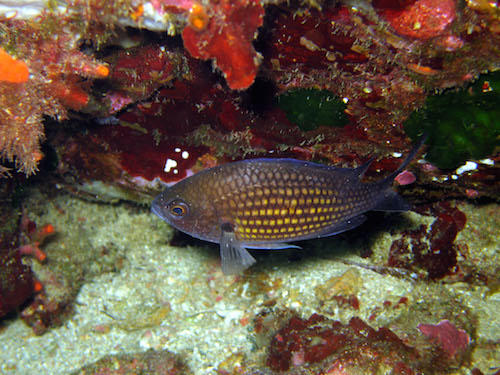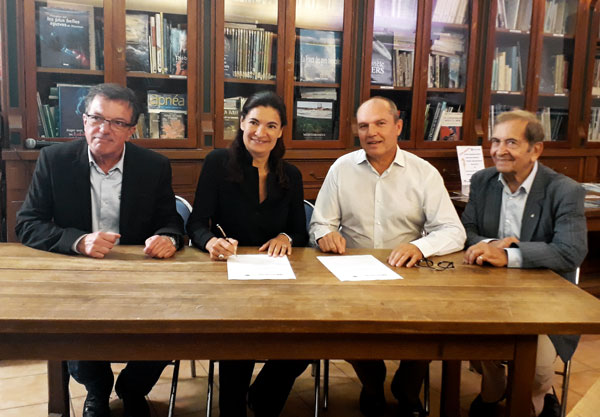
Environment & biodiversity
Place Bouches-du-Rhône (France)
Sponsor Mathilde Nithart
Grants
€30,000 at the Board committee meeting on 18 April 2018
€300,000 at the Board meeting on 18 June 2018
Project leader
Worldwide, 2.6 billion people are now dependent on fishing or aquaculture for their protein intake. Two hundred million people earn all or part of their income from fishing and related activities. Today however, this development is not only facing its ecological limit but also strong economic pressure due to the depletion of the seabed and the collapse of fish stocks.
The Institut Océanographique Paul Ricard (IOPR) is concerned about the issue and has for a long time been working on new forms of aquaculture. In particular, it wants to launch a prototype demonstrator combining sustainable aquaculture, permaculture and technical training.
Integrated multi-trophic aquaculture
Called "13 Ocean", this project combines research and development, experimentation, training and production activities. The aim is to make it the operational demonstrator for a new type of urban aquaculture farm adapted to the needs of people living in big cities and large urban areas.

Crédits Mathilde Nithart" data-entity-embed-display-settings="{"image_style":"crop_freeform","image_link":""}" data-width="original" title="Signature de la convention de partenariat avec l'IOPR" alt="Signature de la convention de partenariat avec l'IOPR">
Specifically, it puts the concept of integrated multi-trophic aquaculture (IMTA) into practice, i.e. raising several species in the same water circuit, limiting water replacement, and consequently discharges, as much as possible. The food given to one of the species provides for them all: the other species use the waste produced by the first species to grow. And in order to limit the use of energy, the water is circulated through an air lift and then gravity system. Farms are thus more efficient, more profitable and more environmentally friendly; less food is required and the water is naturally recycled and purified by the organisms in the circuit. This type of aquaculture makes it possible to work in a controlled environment to avoid any contamination and hence the use of antibiotics.
Study & training
13 Ocean also includes a study on feed production using insect meal and its acceptability to fish. Regional and European funding for this study will evaluate the economic impact of this type of feed.
In addition, there will be complementary production from an urban permaculture unit. It will include hydroponic greenhouses, and a local composting unit designed to recover fermentable waste from local restaurateurs, businesses and individuals. In addition, some of the materials collected will be recycled in the form of insect meal for fish feed.
This perma-aquaculture farm aims to be a space for sharing and transferring knowledge for the region and countries in the southern hemisphere with training in aquaculture, insect breeding, seaweed farming, wastewater treatment, and recycling fermentable materials.
Through this project, supported by the Veolia Foundation, the IOPR aims to demonstrate a new way of producing food – both in quantity and quality.

